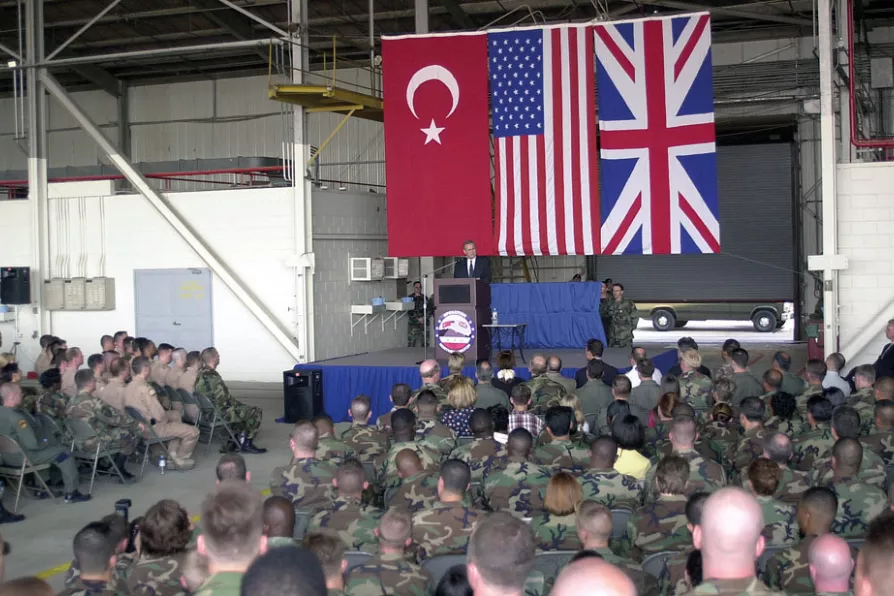The PM says Mandelson 'betrayed our values' – but ministers and advisers flock to line their pockets with corporate cash, says SOLOMON HUGHES

 A BASE FOR IMPERIALIST WAR: Then-US secretary of defence Donald Rumsfeld addresses troops at Incirlik air base, June 2001
A BASE FOR IMPERIALIST WAR: Then-US secretary of defence Donald Rumsfeld addresses troops at Incirlik air base, June 2001
SINCE Nato’s inception, Turkey has been an integral member state. However, public opinion on the alliance is shifting. Increasing tensions brought about by the war across the Black Sea in Ukraine have put Turkey in much closer proximity to danger than the majority of Nato members.
With this in mind, it is no surprise that the Communist Party of Turkey (TKP) has been one of the most outspoken critics of Turkish participation in the alliance, with a protest convoy setting off from Istanbul on September 15 headed to the Incirlik Nato air base, 500 miles away, which serves as a strategic outpost for Nato in the country.
Aydemir Guler, former general secretary and a member of the TKP’s general committee, explains the relationship between Turkey and Nato, Turkey’s position on the Russia-Ukraine war, and the ongoing genocide in Gaza.
Why is everyone gathered here today?
Turkey is a founding member of Nato. Nato’s most famous and prominent military base is found in Adana at the Incirlik air base, on the other side of Turkey from here. We will start marching in Istanbul, and for two weeks, we will continue until we reach Incirlik.

VIJAY PRASHAD details how US support for Syrian President Ahmad al-Sharaa allowed him to break the resistance of the autonomous Syrian Democratic Forces (SDF)

HUGH LANNING reports on an initiative that will aim at counteracting the anti-Palestine narratives spoon-fed to Western governments and the mass media by Israel’s propaganda machine

In the first half of a two-part article, PETER MERTENS looks at how Nato’s €800 billion ‘Readiness 2030’ plan serves Washington’s pivot to the Pacific, forcing Europeans to dismantle social security and slash pensions to fund it

Speaking to a CND meeting in Cambridge this week, SIMON BRIGNELL traced how the alliance’s anti-communist machinery broke unions, diverted vital funds from public services, and turned workers into cannon fodder for profit










